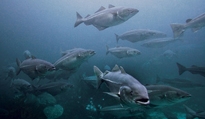How to Transform European Fisheries policy

Frank Hecker
The public debate on the third reform of the Common Fisheries Policy (CFP) began on April 22nd 2009 with the publication of the European Commission’s Green Paper. With over 80 percent of assessed fish stocks in Community waters deemed overfished and the fishing industry stumbling from one crisis to another, the current CFP is widely perceived as being a failure. The situation is dire. Unless this reform addresses the main structural failings of the CFP, fish stocks will be further depleted, exacerbating the crises facing the fisheries sector, with potentially disastrous consequences for fishery-dependent coastal communities.
EU fisheries are characterised by fleets that are able to catch more fish than are available, catch limits that are frequently set too high for reasons of political expediency, opaque decision-making procedures and a culture of non-compliance with the rules of the CFP.
The 2002 CFP reform brought some improvements in the areas of long-term management, participation, control and allocation of subsidies. However, it did not prioritise achieving environmental sustainability - a prerequisite for the socially and economically sustainable exploitation of marine resources.
...a whole-scale and fundamental reform of the Common Fisheries Policy (CFP) and remobilisation of the fisheries sector can bring about the dramatic change that is needed to reverse the current situation. This must not be yet another piecemeal, incremental reform but a sea change cutting to the core reasons behind the vicious circle in which Europe’s fisheries have been trapped in recent decades. European Commission, Green Paper, April 2009
A new principle-centred approach to fisheries management
This paper responds to this challenge, proposing a fundamentally new, principlecentred approach to fisheries management in Community waters and for the EU fleet globally. It outlines the key issues that OCEAN2012—an alliance of organisations dedicated to transforming European Fisheries Policy to stop overfishing, end destructive fishing practices and deliver fair and equitable use of healthy fish stocks—would like to see incorporated into a new CFP:
- Environmental objectives should be enshrined in the CFP as a prerequisite to fulfilling social and economic objectives; the precautionary approach and the ecosystem-based approach to fisheries management must form the fundamental basis upon which EU fisheries management is built.
- The CFP should define a decision-making framework ensuring that decisions are taken at the appropriate levels, differentiating between long-term strategic and operational management decisions.
- The CFP should define instruments and competencies which deliver sustainable fishing power2 at EU and regional level; this should include legally-binding and time-bound fishing power limits per fishery, or group of fisheries, in a given area in the case of multi-species fisheries.
- Access rules should be based on a set of criteria that ensure a transition to, and support for, environmentally and socially sustainable fishing.
- The decision-making processes should be transparent and participatory.






